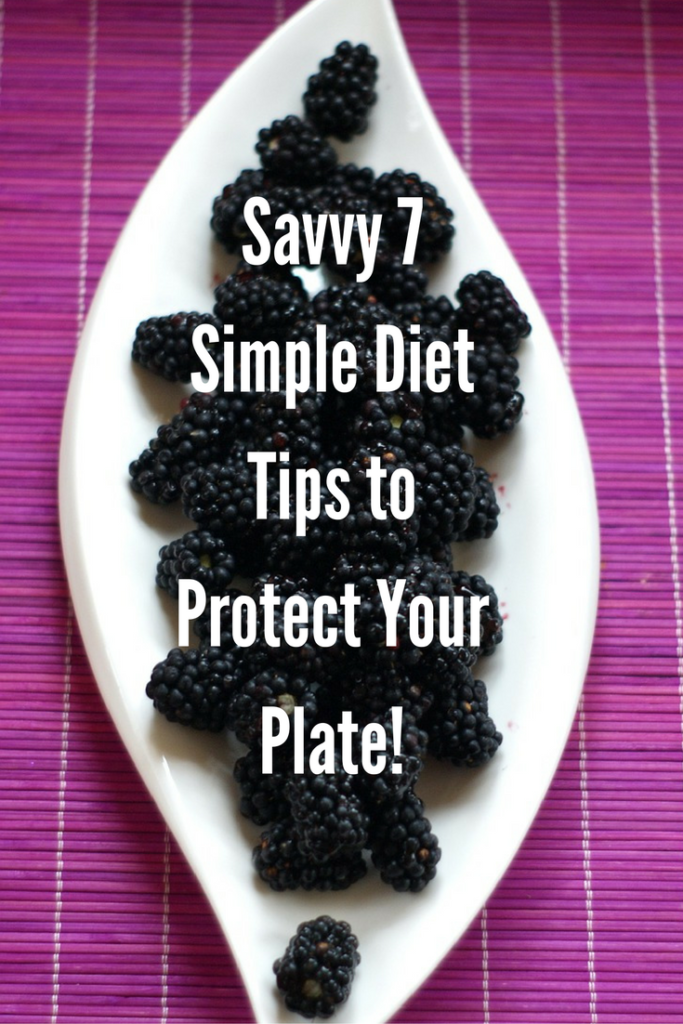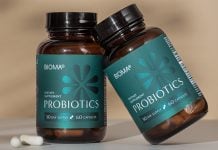
Simple Grocery & Diet Tips to Live By
Food borne illnesses are commonly in the limelight… How can you protect yourself from such things? Check out these diet tips that will help you protect your plate and your body!
Nutrition and diet tips to protect your plate
On a seemingly regular basis, the news shares the traumatic effects of food borne illness on human lives.
The fact remains, there are regular bacteria-related recalls of produce that go under the radar that are affecting people’s health consistently, which could otherwise be avoided with proper food washing education and dispelling the myths around unproven approaches. Here’s 7 tips for protecting your family from world-renowned nutritionist Mareya Ibrahim.
The Savvy 7 Diet Tips Are
1. Shop with your eyes wide open
This means reading labels, becoming knowledgeable about product ingredients and knowing how meats and dairy products should be stored to avoid them going bad. Another thing to look out for: “Avoid any cans or packages that are dented, opened or leaking. Also, make sure to check expiration dates and avoid buying perishables too close to expiration,” says Ibrahim.
2. Pick your produce wisely
 The most important rule is to “Never, ever, ever ‘sample’ unwashed’ produce at the store or farmers market. Often items like berries are picked and packed right in the field and are not even rinsed. They could be seething with bacteria and potential contaminants,” says Ibrahim.
The most important rule is to “Never, ever, ever ‘sample’ unwashed’ produce at the store or farmers market. Often items like berries are picked and packed right in the field and are not even rinsed. They could be seething with bacteria and potential contaminants,” says Ibrahim.
Produce travels an average of 1,500 miles and passes through “over 20 sets of hands from field to fork,” says Ibrahim, so try to buy produce grown closer to home, as that may decrease the risk for contamination.
3. Remember the CSCC’s of food safety from the USDA:
- Clean food as well as everything coming into contact with food before and after use, from hands to knives to cutting boards
- Separate uncooked meat from everything else to avoid cross-contamination, and don’t replace cooked meat onto the platter that held it raw
- Cook meat, eggs and poultry thoroughly, using a meat thermometer to check temperature
- Chill leftovers promptly, as bacteria grows quickly at room temperature
4. Give your fruit and veggies a real wash
Along with pesticides, many fruits and vegetables are also coated in wax to help it hold up to long journeys. Pesticides, wax and dirt should be thoroughly scrubbed or soaked off produce, which includes organic produce. Opinions differ on the best way to clean fruits and veggies, but at least do something to clean off harmful pesticides. As the founder of Eat Cleaner, a fruit and vegetable wash which also comes in a wipe and spray form, Ibrahim is a big believer in thoroughly cleaning produce.
“You have to think, what else do we ‘clean’ with water alone?” she says. Her Eat Cleaner product may be a good choice because it also extends produce shelf life and is sold as handy on-the-go wipes and granulated powder. Ibrahim advises, “Just remember these 4 simple steps: Spray, soak, rinse, dry.”
5. Don’t let your fowl go foul
There’s something called ‘fecal soup‘ that is created when birds are slaughtered and soak in a salt bath, which often makes it to the package. Clean birds carefully to remove this, as not to splash water which could transmit Salmonella and other pathogens. Rewash hands after touching uncooked meat and, Ibrahim says, “Keep uncooked poultry, meat, and seafood wrapped in plastic bags or in a container in the fridge to prevent leakage of juices and liquids.”
6. Select your seafood safely
 “Avoid purchasing pre-cooked seafood if they are in a case next to uncooked seafood. The potential for cross contamination is too high. If you must, ask your handler to put on a fresh pair of gloves,” says Ibrahim. Trust your nose, and reject any seafood that smells suspicious. Also, choose wild caught seafood over farm raised. A big surge of the available seafood is being raised in closed quarters that can spread disease and bacteria more rampantly than line caught counterparts.
“Avoid purchasing pre-cooked seafood if they are in a case next to uncooked seafood. The potential for cross contamination is too high. If you must, ask your handler to put on a fresh pair of gloves,” says Ibrahim. Trust your nose, and reject any seafood that smells suspicious. Also, choose wild caught seafood over farm raised. A big surge of the available seafood is being raised in closed quarters that can spread disease and bacteria more rampantly than line caught counterparts.
7. Chill out
Heat can become a breeding ground for bacteria where they can grow exponentially in just minutes. When it comes to perishables like meat, dairy and fresh fruit + veggies. If you’re not taking a direct route home from the grocery, tote your own insulated grocery bags or coolers to help keep your bundles from going bad.
If you’re planning a picnic or barbecue away from home, make sure to pack plenty of ice. Perishable food should never sit out for more than two hours and if the temperature is above 90°F, one hour is the max.
Wrap-Up
Don’t let food horror stories make you shun the supermarket.
Knowing correct selection and handling tips goes a long way in preventing food borne illnesses, so you can be confident that you’re protecting your family’s plate.
- The 7 Simple Diet Tips For Eating Healthy - September 23, 2016


